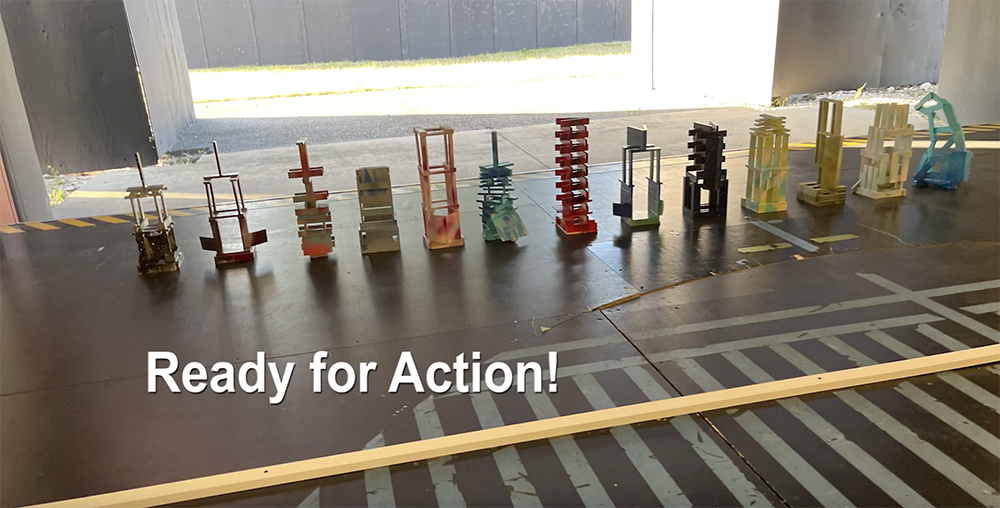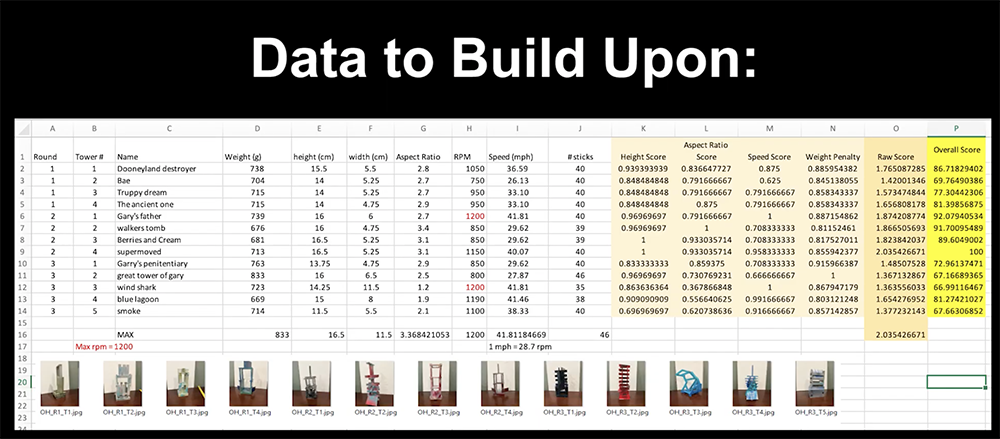New Initiative Trains Undergrads in Engineering Education
NHERI at University of Florida integrates REU curriculum into its novel teacher training program
Published on February 2, 2022
The NHERI at University of Florida experimental facility is breaking ground in undergraduate education. This year, UFs Research Experiences for Undergraduate program (REU) will train a student in the field of engineering education, a first in the NHERI community.
As well as gaining familiarity with the wind tunnel facility, the 2022 NHERI REU student will work with the UF education team as an integral part of its new Teacher Training Program. The UFs TTP is an NSF-funded professional development program for teachers in Floridas Title 1 schools, those in economically disadvantaged school districts.
UFs Jeremy Waisome, instructional assistant professor, is leading the teacher training effort. Were looking for an REU student who is interested the social science side of things, Waisome says. Waisome, an engineer herself, is passionate about introducing engineering and STEM concepts to kids.
Waisome recalls being an inquisitive high-schooler herself and getting introduced to STEM subjects through university outreach programs. Those experiences really influenced my life, she says. Indeed. Waisomes career path led to a PhD in civil engineering, and now engineering education.
And as an African-American, she firmly believes in the importance of exposing kids from underrepresented groups to the thrills of engineering and STEM. She also stresses the importance of having diverse role models for K-12 students. The UF team hopes to find an REU student from an underrepresented group who has a drive to share their engineering knowledge with both teachers and K-12 kids.

Student-built tipping towers ready for testing at the UF wind tunnel. It is one example of a wind engineering project K-12 teachers can incorporate into their classrooms. (Image: Robert Ponzio, Oak Hall School)
A model for training K-12 teachers
UFs Teacher Training Program also is breaking new ground. For teachers, we want to go beyond one-time engagement, Waisome emphasizes. We want this to be a professional development opportunity for teachers.
It officially begins with a Summer Training Institute in June 2022, a week-long residential learning experience for teachers. The first cohort of about 10 teachers will spend a week at the UF campus. They will tour the wind tunnel facilities, discover its national importance and become familiar with wind engineering concepts.
Over the course of the week, each teacher will identify a wind-engineering or other STEM-related activity to incorporate in their classroom.
The project could be as involved as a multi-part learning module. But depending on a teachers time, goals and curricular requirements the project might be a single, one-day activity. It is important to be flexible, says Waisome. Even among Title 1 schools, budgets vary significantly.
Another goal is to to provide diverse role models to students, says Waisome. Many UF and NHERI faculty are involved in the TTP, as faculty, staff and graduate students many of whom come from diverse backgrounds.

Students learn that collecting data on engineering experiments is necessary to determine successful designs. (Image: Robert Ponzio, Oak Hall School)
Lessons about learning
The idea of leveraging university outreach to train local teachers is not new, but its not necessarily an easy task, says Kurt Gurley, professor of engineering at UF and the ECO representative for the NHERI at UF facility. Its important to listen to the teachers, to understand their experiences and needs.
As a resource, Waisome and Gurley enlisted Karen Bruening, an experienced and energetic science teacher from Pensacola High School. Bruening teaches Earth and space science, and she offers a special experimental science course for students interested in engineering.
Bruening helped the UF team develop a pilot project for their program, a tipping tower competition. Using knowledge about building-performance under hurricane loading, student teams design and construct towers to withstand hurricanes in the UF wind tunnel.
Importantly, UF supplied building materials for the towers. It helps to have a budget for a robust teacher training program, says Gurley. You cant expect teachers to afford extra costs.
The tipping tower competition is popular with the kids at Pensacola High and is already being adopted by other K-12 teachers in the district and around the state.
Bruening also helped develop the curriculum for UFs 2022 Summer Training Institute. Not only did she provide context about the types of training that would be helpful for teachers without an engineering background, she identified fun and appropriate in-class activities, aligned them with standards, and connected them to equipment and topics relevant to the NHERI experimental facility.
Kurt and Jeremy have been very supportive. They are such enthusiastic engineers. That really made it work, Bruening says.
Bruening and the educators at UF look forward to working with an undergraduate in the NHERI REU program. We are excited to host an undergraduate student at our facility and introduce them to opportunities in research they never knew existed at the intersection of engineering and education, Waisome says.





